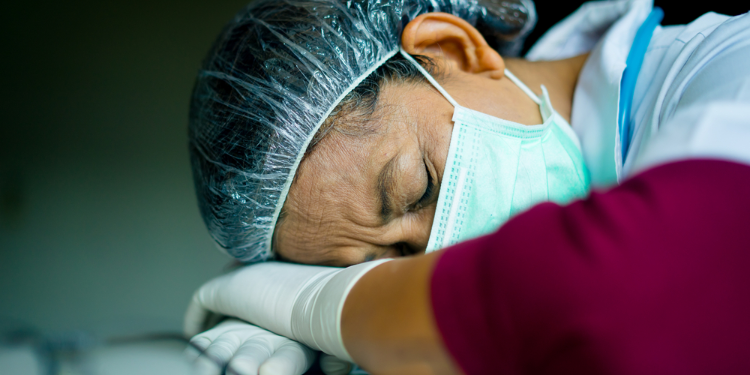
Things are getting worse in India, with a death toll of over 218,000 deaths and more than 20 million positive COVID-19 cases. As the health system crumbles under the rising pressure, several countries have expressed their concerns. Some have closed their borders to travellers from India, while others are setting up aid plans.
In virtually every State in India, every minute counts. Every day, thousands of new cases and deaths are reported as the health system faces a shortage of hospital beds, equipment, oxygen cylinders, vaccines and medication. According to the World Health Organization, globally, one in three daily new cases is reported in India.
The already dramatic situation worsened in February, with more than 10,000 new infections per day. Between February and April, more than 7 million new cases were recorded, with 48,000 deaths in April alone. In the first week of May, more than 400,000 new cases were recorded. In Maharashtra, which is the most seriously affected state, health restrictions were extended until May 15.
Indian authorities are now being extra cautious due to the lack of information on the number of cases linked to the new variant.
Only 2% of the population has been fully inoculated
India's COVID-19 vaccination campaign began in January, and by the end of April, more than 154 million doses had already been administered. However, the 27.9 million people who already received their two doses of the vaccine account for only 2% of the population. So far, only 10% of the population have received their first dose with priority to the most vulnerable people. But since May 1, the government announced that anyone who is 18 years old or more should get vaccinated so as to achieve collective immunity.
But India has got the whole world worried, especially about the shortage of vaccines and oxygen cylinders. Many countries thus pledged to provide assistance as soon as possible. For now, Sputnik V, which was developed in Russia, and other foreign-manufactured vaccines that have been approved by the WHO, will be administered. The Serum Institute, the maker of the AstraZeneca vaccine, has pledged to increase its production capacity to at least 100 million doses per month instead of 60-70 million.
Many countries have closed their borders to India
More than 40 countries, including the United Kingdom, Germany, the United States, Italy, Belgium, etc., closed their borders to travellers from India. But the measure announced by Australia definitely caught attention. From May 3 until May 15, all flights from India are suspended. What's more, heavy penalties have been introduced for stranded Australians who try to return from India during this period. A fine of up to $ 66,000 and a 5-years prison sentence are being considered. According to official figures, more than 9,000 Australian nationals are currently waiting for repatriation from India. But Australian authorities have warned that it could take several months.
The United States has also introduced a travel ban for India from May 4 for 14 days. However, US citizens, permanent residents and their family members, as well as international students in the United States, are exempt from this travel ban. Other countries chose to reduce their flights and increase the mandatory quarantine period for travellers from India.
Humanitarian aid accelerates
Many countries have already pledged to provide aid to India as its health system crashes under rising COVID-19 pressure. Last week, the United States announced an aid plan of more than $ 100 million, including N95 masks, PCR tests and oxygen cylinders. The country has also redirected its order of 20 million doses of the AstraZeneca vaccine to India as a sign of solidarity. On Monday, pharmaceutical giant Pfizer pledged to donate medicine packs worth $ 70 million to India from its centres based in the United States, Europe and Asia.
Canada will provide its surplus emergency equipment, including respirators, to India. The Canadian government is currently trying to identify the means by which it could assist India. For example, an amount of $ 10 million has been dedicated to the Canadian Red Cross for support to the Indian Red Cross Society. Canada is also looking to ship medicine, oxygen tanks and other essential medical equipment to India in the coming weeks. Last weekend, Ontario alone pledged to provide 3,000 respirators.
The UK, which has already shipped 200 respirators and 500 oxygen concentrators to India, is providing 1,000 additional respirators. Meanwhile, Russia has supplied respirators and 200,000 medicine packs of medicine and raw material for the production of vaccines, oxygen concentrators, and other essential medical equipment.
But that's not all! Many Indian and international film stars are showing solidarity with India by donating through recognised organisations and foundations.



















